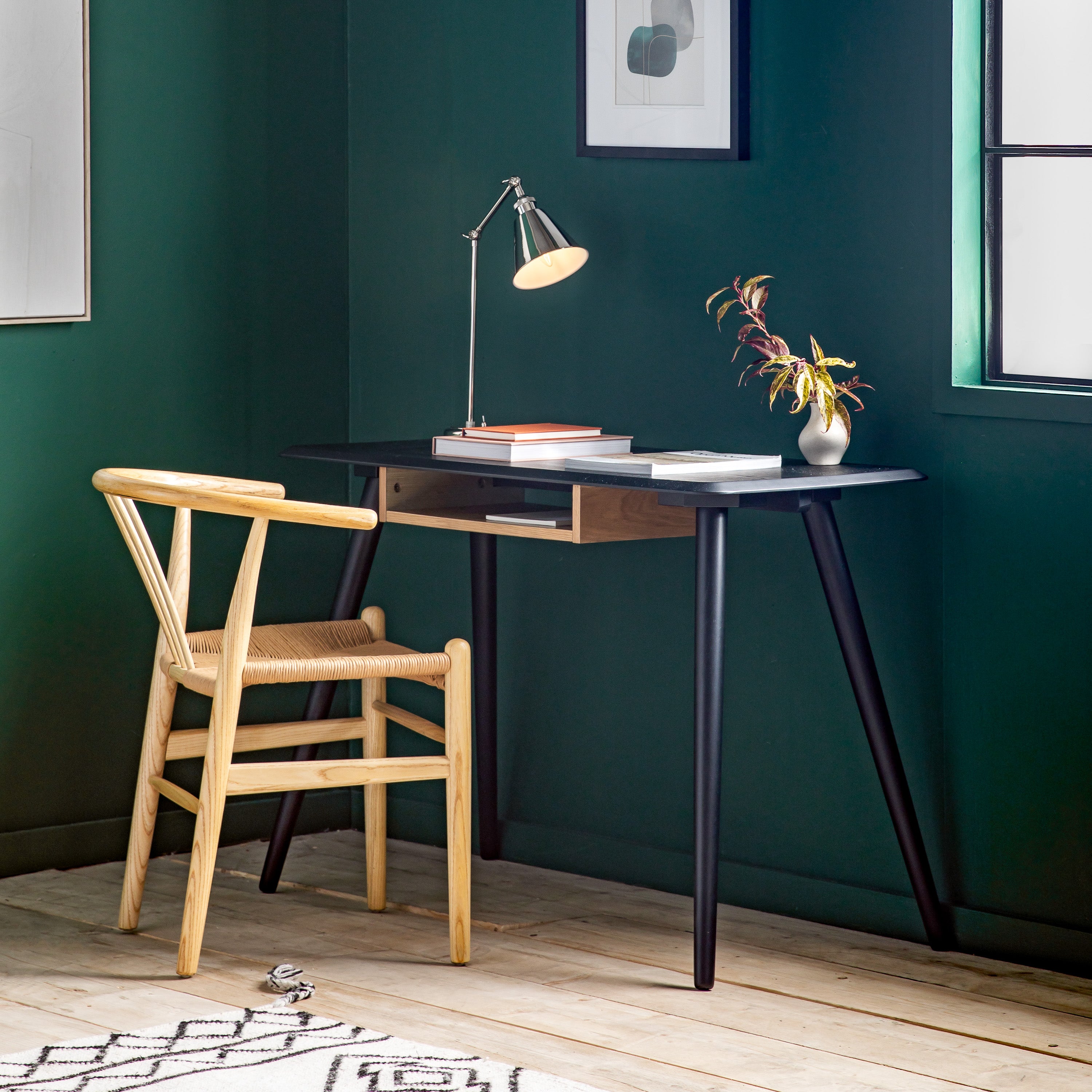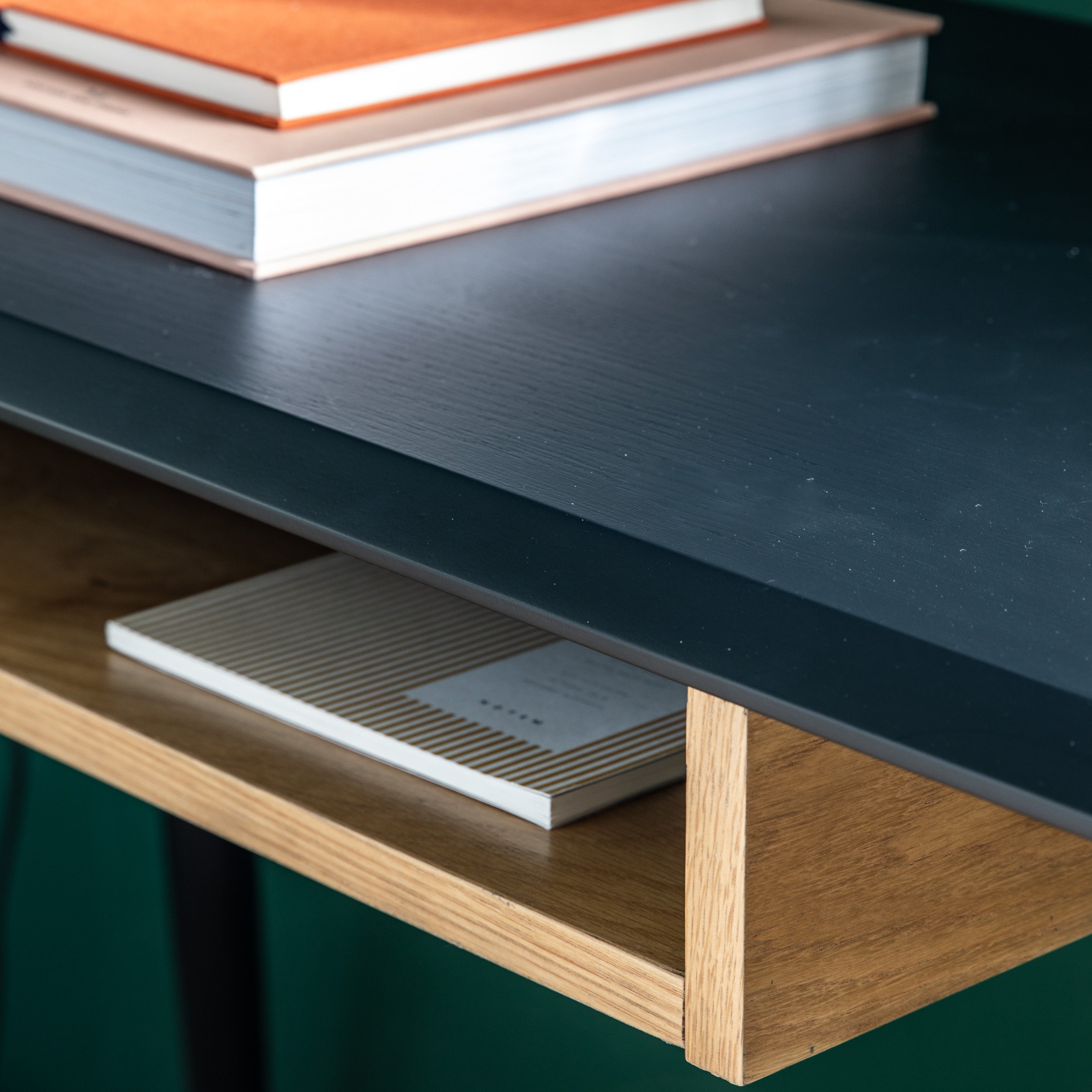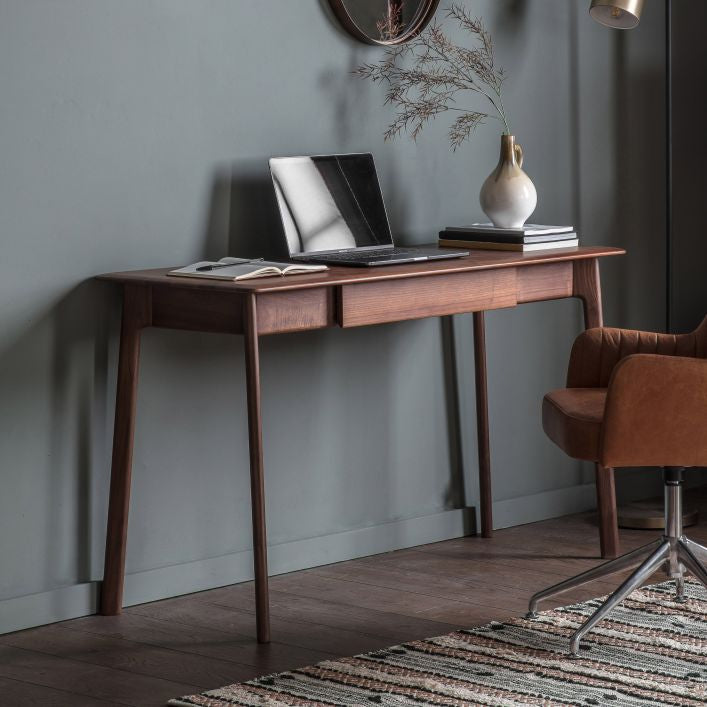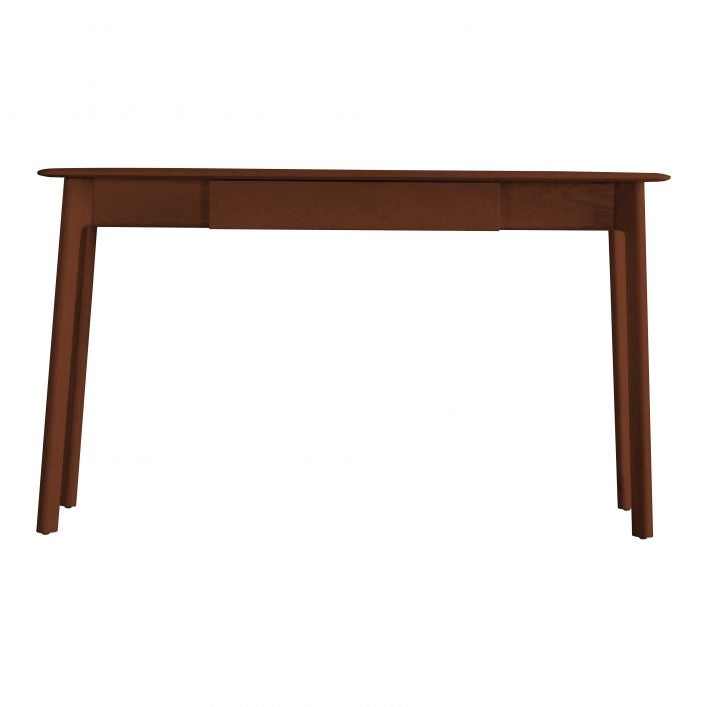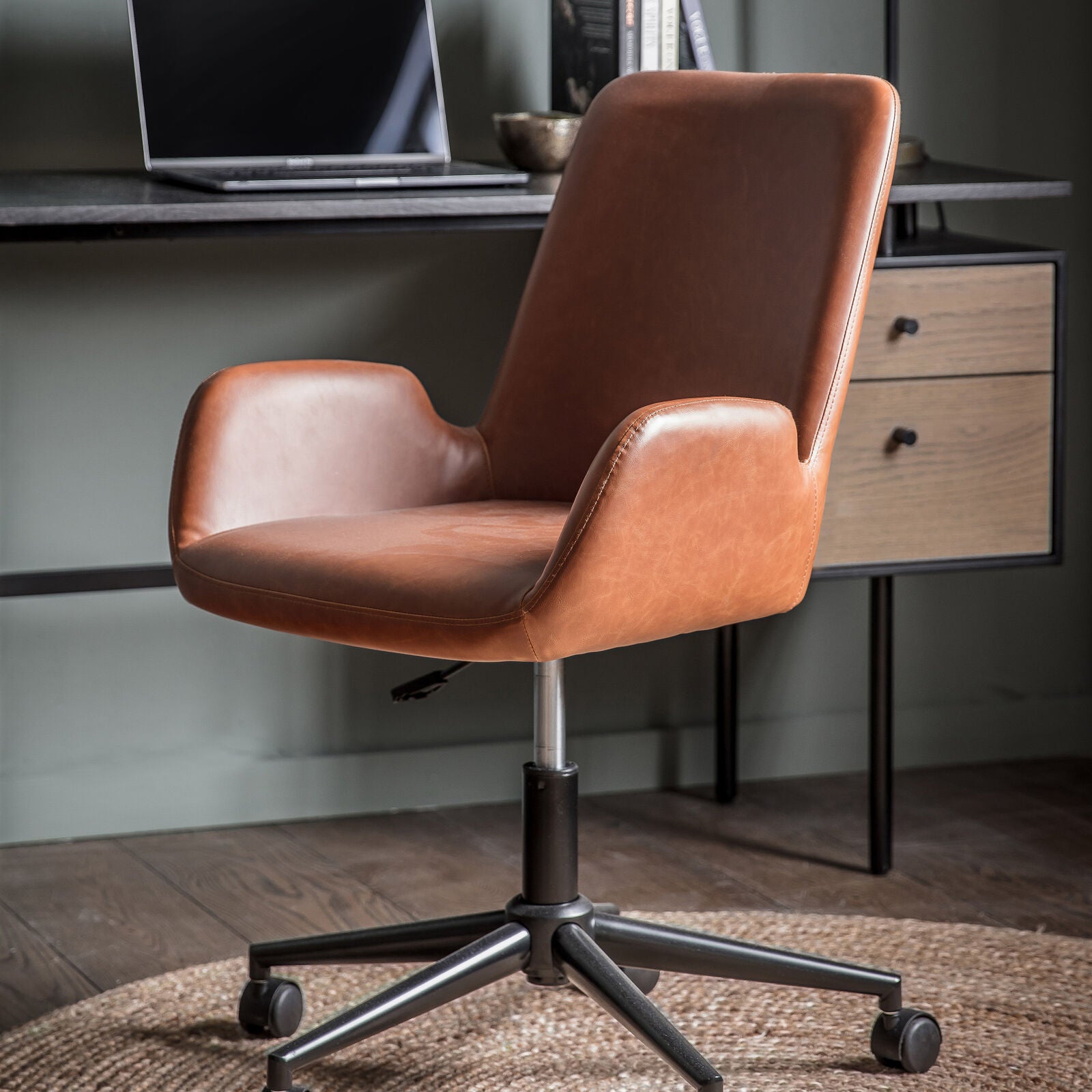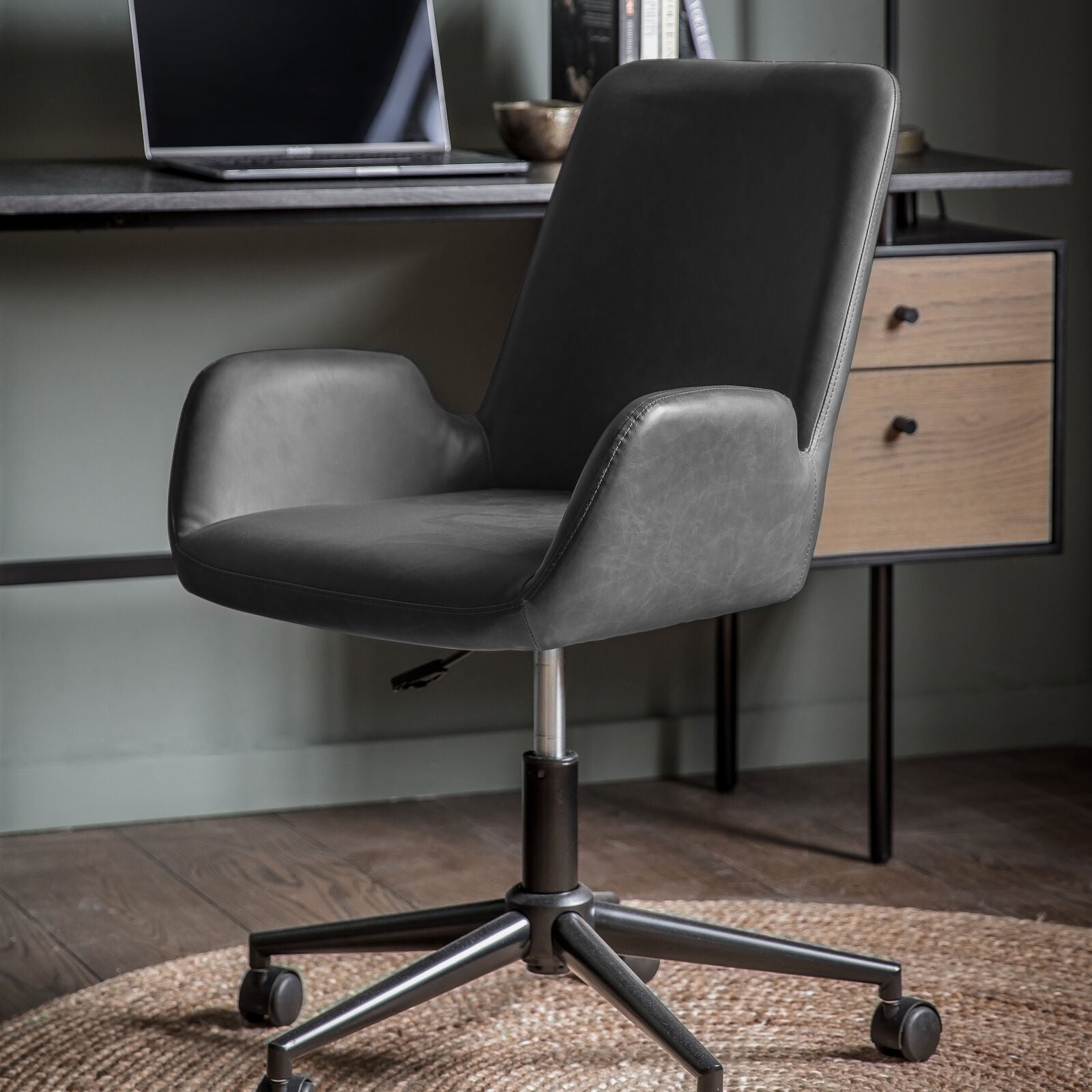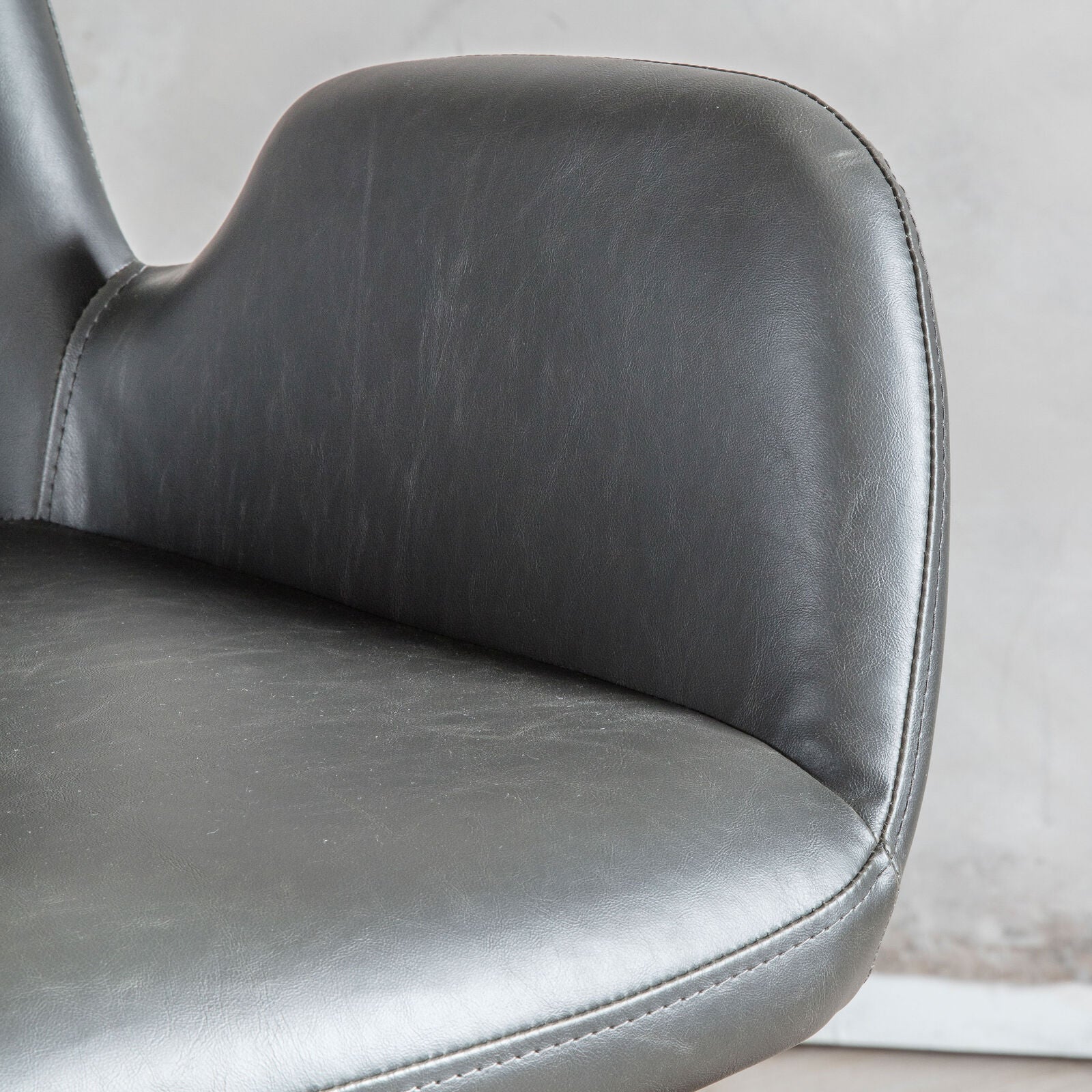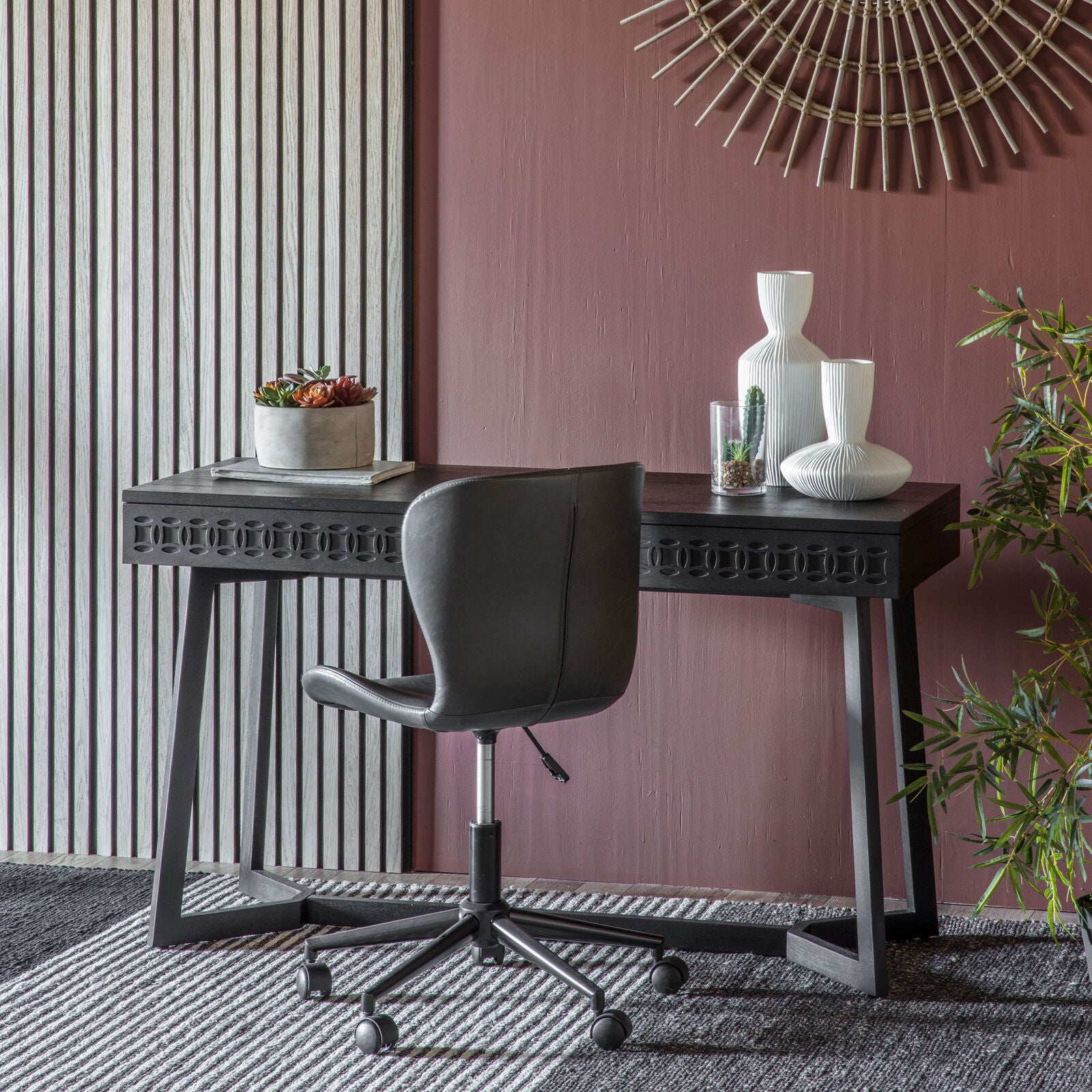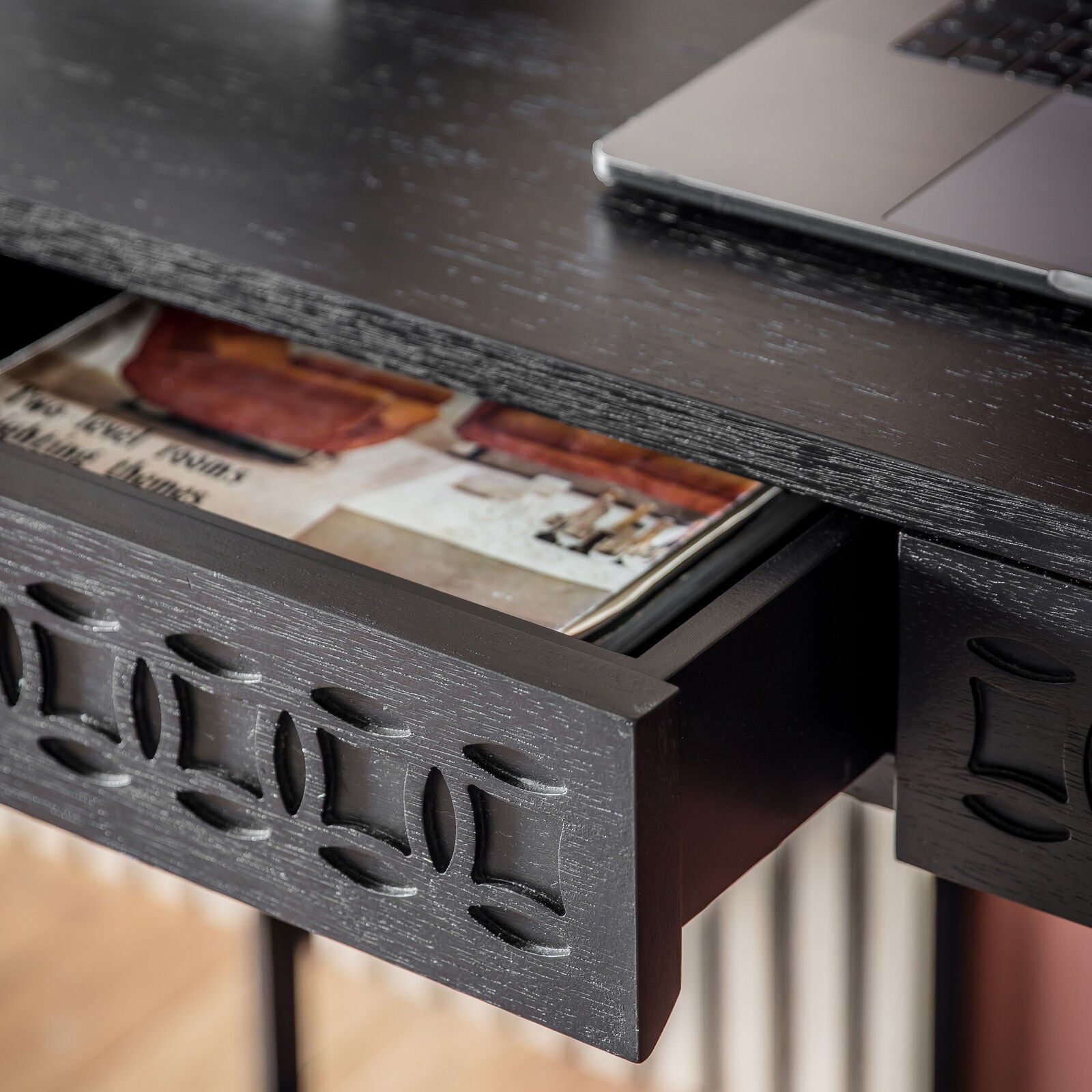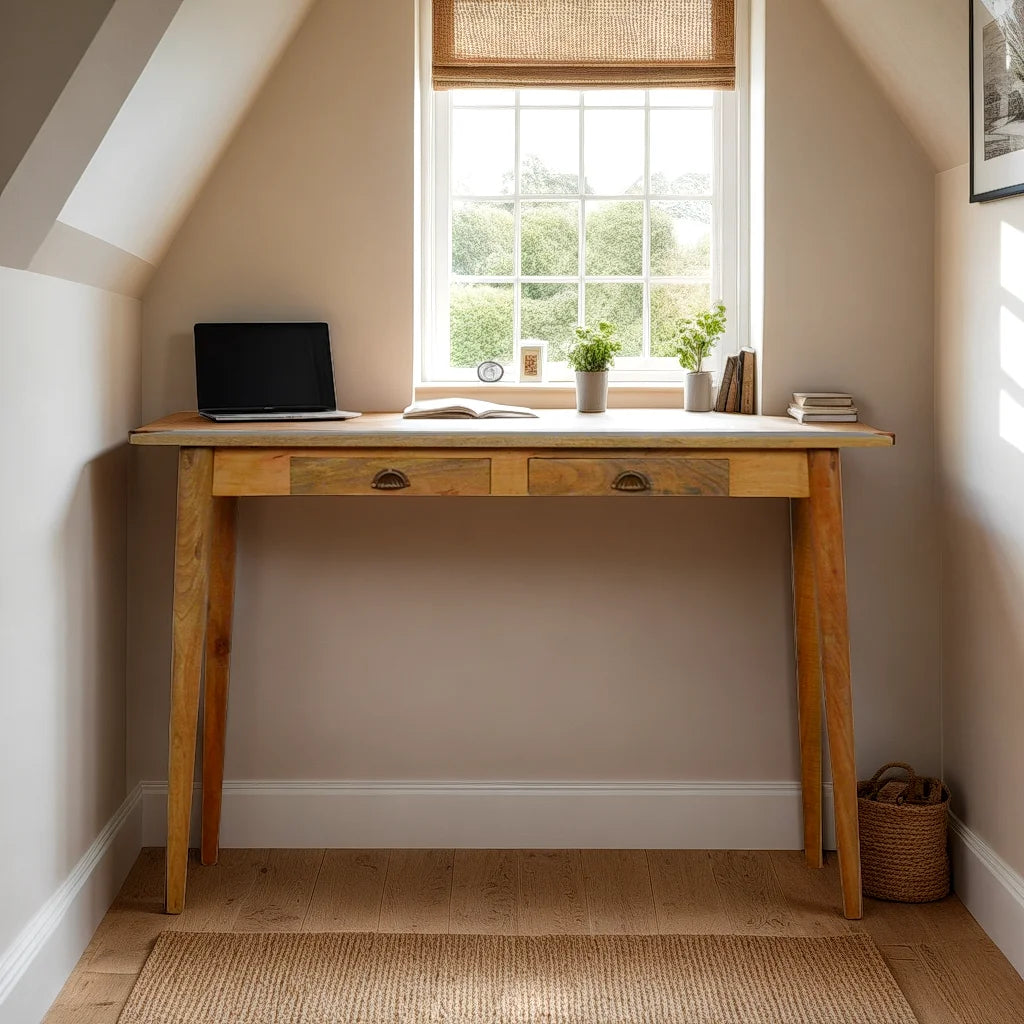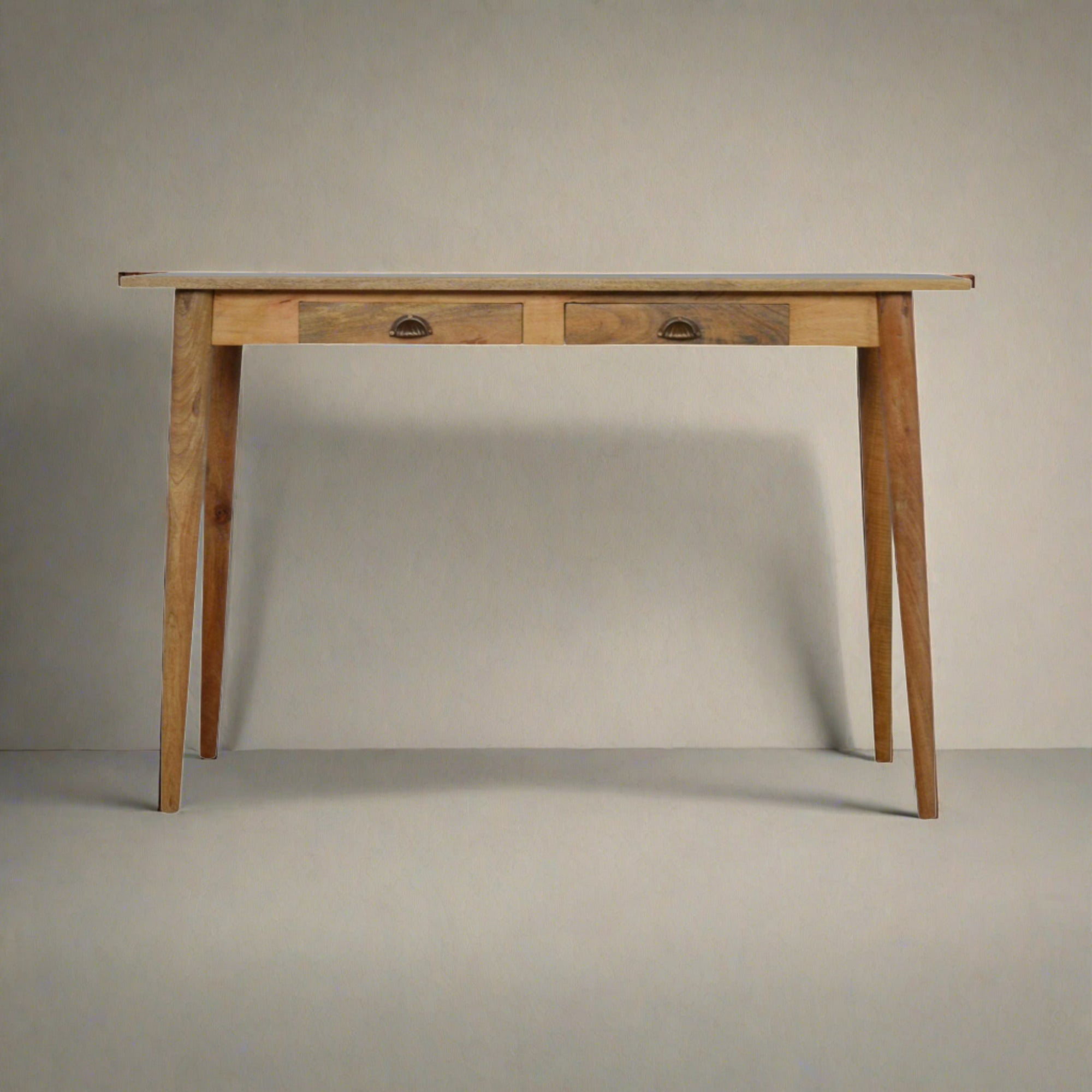Fast & Free UK Mainland Shipping
Free Shipping
Online Chat
All Questions Answered
30 Day Returns
No Quibble Returns Policy
Filters
9 products
Our Guarantee
Our mission is to bring you amazingly beautiful furniture and homewares that you’ll love.
When we select our products we seek quality craftsmanship, naturally
sustainable materials and innovative design solutions.
We want you to enjoy great quality products that won’t break the bank.
We have a 30 day no quibble return guarantee and we promise to give you a quality service that ensures your satisfaction.
If anything is not right, just let us know and we will get to work on fixing it.
Thinking about a home study desk ..
Boost Your Productivity: Tips for Setting up an Inspiring Home Study Desk
Transform your home study desk into a productivity powerhouse with these invaluable tips. Whether you're a student preparing for exams, a remote worker needing a designated workspace, or simply someone seeking a more inspiring environment, setting up an efficient and inspiring home study desk is essential.
In this article, we'll explore the key elements that can elevate your productivity and focus. From decluttering and organizing strategies to ergonomic setup and personalization, we'll guide you through the steps to create a work area that sparks creativity and motivation.
With everything from the right lighting and comfortable seating to strategic storage solutions and inspiring decor, you'll discover how small changes can have a big impact on your work efficiency.
Boosting your productivity starts with an inviting and functional home study desk. So, gather your supplies, clear your schedule, and get ready to turn your study corner into a haven of productivity. Let's get started!
Importance of a well-organized study desk
A well-organized study desk is the foundation of a productive workspace. It sets the stage for focused work and minimizes distractions. When your desk is cluttered and disorganized, it can be difficult to find what you need, leading to wasted time and decreased productivity.
Start by decluttering your desk. Remove any unnecessary items and keep only the essentials within reach. Use organizers and storage solutions to keep your desk tidy and organized. This will help you stay focused and reduce visual distractions.
Additionally, having a designated space for each item will save you time and effort in searching for things. Invest in desk organizers, trays, and drawers to keep everything in its place. This will not only make your desk look neater but also make it easier to find what you need when you need it.
Remember, a well-organized study desk is not only visually appealing but also contributes to a clearer and more focused mind. Take the time to declutter and organize your desk regularly, and you'll see a significant improvement in your productivity.
Choosing the right location for your home study desk
The location of your home study desk plays a crucial role in your productivity. It should be a space that is separate from distractions and offers a quiet and peaceful environment.
Ideally, choose a location with natural light. Natural light has numerous benefits, including boosting mood, increasing focus, and reducing eye strain. Position your desk near a window to take advantage of natural light during the day. If natural light is limited, invest in a good desk lamp that provides adequate illumination.
Consider the noise level in the area where you plan to set up your study desk. Avoid high-traffic areas or places with constant noise, as it can be distracting and disruptive to your concentration. Additionally, if you live with others, try to find a location that offers some privacy to minimize interruptions.
Another important factor to consider is the size of the space. Ensure that your desk fits comfortably in the chosen location, allowing you to move freely and have enough space for your work materials. A cramped or cluttered workspace can negatively impact your productivity and hinder your ability to focus.
By choosing the right location for your home study desk, you'll create an environment that promotes focus, concentration, and productivity.
Essential items for a productive study desk setup
Creating a productive study desk setup involves having the essential items that support your work and minimize distractions. Here are some key items to consider:
- A comfortable and ergonomic chair: Invest in a good-quality chair that provides proper support for your back and promotes good posture. An ergonomic chair will prevent discomfort and back pain, allowing you to work for longer periods without fatigue.
2. A spacious desk: Choose a desk that offers enough surface area to accommodate your work materials, such as a laptop or computer, notebooks, and reference books. A clutter-free workspace will help you stay organized and focused.
3. Proper lighting: Good lighting is essential for productivity and reducing eye strain. Ensure that your study desk is well-lit, either with natural light or a combination of natural and artificial lighting. Avoid harsh lighting that can cause glare on your computer screen or strain your eyes.
4. Stationery and supplies: Keep essential stationery and supplies within reach, such as pens, highlighters, sticky notes, and paper clips. This will save you time and prevent unnecessary interruptions during your work sessions.
5. A whiteboard or corkboard: Having a whiteboard or corkboard near your study desk allows you to jot down important reminders, deadlines, and to-do lists. It serves as a visual aid to keep you organized and focused on your tasks.
6. A desk organizer: A desk organizer is essential for keeping your desk clutter-free and organized. Choose one that has compartments for storing pens, pencils, paper clips, and other small items. This will help you maintain a clean and efficient workspace.
By having these essential items for your study desk setup, you'll create a functional and efficient workspace that promotes productivity and focus.
Ergonomics and comfort in your study desk setup
Ergonomics is the science of designing a workspace that promotes efficiency, comfort, and overall well-being. When it comes to your study desk setup, ergonomics plays a vital role in ensuring your physical comfort and preventing musculoskeletal issues.
Start by adjusting your chair to the correct height. Your feet should be flat on the floor, and your knees should be at a 90-degree angle. Adjust the backrest to support your lower back and maintain good posture.
Next, position your computer or laptop at eye level to avoid straining your neck. Use a monitor riser or adjustable laptop stand if needed. Ensure that your keyboard and mouse are at a comfortable height and distance from your body to prevent wrist and arm strain.
Consider using an ergonomic keyboard and mouse that provide proper support and reduce the risk of repetitive strain injuries. Additionally, invest in a wrist rest to support your wrists and alleviate any discomfort during long hours of typing.
Don't forget about your lighting setup. Adjust the lighting in your study area to reduce glare on your computer screen. Use adjustable blinds or curtains to control the amount of natural light entering the room. If necessary, use a desk lamp with adjustable brightness to provide adequate lighting for your work.
Lastly, take regular breaks and incorporate stretching exercises into your study routine. Sitting for long periods can lead to stiffness and muscle tension. Stand up, stretch, and move around every hour to promote blood circulation and reduce the risk of developing health issues associated with prolonged sitting.
By incorporating ergonomic principles into your study desk setup, you'll create a comfortable and conducive environment that promotes productivity and overall well-being.
Personalising your study desk to inspire creativity and focus
Personalising your study desk is an effective way to create a space that inspires creativity and focus. Surrounding yourself with items that you love and that reflect your personality can significantly enhance your motivation and productivity.
Start by adding plants to your study desk. Plants not only add a touch of greenery but also improve air quality and create a calming environment. Choose low-maintenance plants such as succulents or small potted herbs that require minimal care.
Consider displaying motivational quotes or artwork that resonates with you. Hang them on the wall or place them on your desk in frames. These visual reminders can help you stay motivated and focused on your goals.
Incorporate colours that promote productivity and creativity. Blue and green are known to enhance focus, while yellow and orange stimulate creativity. Use these colours in your desk accessories, such as pen holders, notebooks, or desk organizers.
Personalize your study desk with meaningful objects or mementos that inspire you. It could be a photo of loved ones, a souvenir from a memorable trip, or a small trinket that holds sentimental value. These personal touches can evoke positive emotions and create a sense of comfort and familiarity in your workspace.
Lastly, consider incorporating aromatherapy into your study desk setup. Certain scents, such as lavender or citrus, can help reduce stress, improve focus, and enhance productivity. Use scented candles, essential oil diffusers, or room sprays to create a pleasant and energizing atmosphere.
By personalizing your study desk, you'll create a space that not only enhances your productivity but also reflects your unique style and preferences.
Organization and decluttering tips for an efficient study desk
An efficient study desk requires proper organization and decluttering. Clutter not only affects your physical workspace but also impacts your mental clarity and focus. Here are some tips to keep your study desk organized and clutter-free:
- Create designated storage spaces: Assign specific areas for different items on your desk. Use drawers, trays, and organizers to keep everything in its place. For example, have a tray for pens and pencils, a drawer for notebooks, and a compartment for sticky notes and paper clips.
2. Minimize paper clutter: Go digital whenever possible to reduce the amount of paper on your desk. Scan important documents and save them on your computer or cloud storage. Use digital notebooks or note-taking apps to keep track of your ideas and lecture notes.
3. Sort and categorize: Regularly sort through your desk items and categorize them accordingly. Have separate folders or files for different subjects or projects. This will make it easier to find what you need and minimize the time spent searching for documents.
4. Implement the "one in, one out" rule: For every new item you bring to your desk, remove an old or unnecessary item. This helps prevent unnecessary accumulation of items and ensures that your desk remains clutter-free.
5. Clear your desk at the end of each day: Develop a habit of clearing your desk at the end of each day. Put away items, file papers, and discard any unnecessary clutter. This will allow you to start fresh the next day and maintain an organized workspace.
Remember, an organized and clutter-free study desk promotes focus, efficiency, and a clear mind. Take the time to declutter and organize your desk regularly to maintain an efficient workspace.
Lighting and ambiance considerations for your study desk
Lighting and ambiance play a significant role in creating a productive study desk environment. The right lighting can enhance concentration, reduce eye strain, and create a pleasant atmosphere. Here are some considerations for optimizing lighting and ambiance in your study area:
- Natural light: Position your study desk near a window to take advantage of natural light. Natural light has been shown to improve mood, increase productivity, and regulate sleep patterns. Arrange your desk in a way that allows you to work without direct sunlight hitting your computer screen to avoid glare.
2. Artificial lighting: If natural light is limited or not available, incorporate artificial lighting into your study desk setup. Choose a desk lamp that provides adequate illumination without causing harsh shadows or glare. Opt for LED bulbs, as they are energy-efficient and provide bright, white light that simulates natural daylight.
3. Adjustable lighting options: Consider using adjustable lighting options to create the desired ambiance for different study tasks. Dimmable lamps or those with multiple brightness settings allow you to customize the lighting based on your needs. This flexibility can help create a comfortable and focused atmosphere.
4. Avoid harsh or fluorescent lighting: Harsh or fluorescent lighting can cause eye strain and fatigue. If you have overhead fluorescent lights, consider diffusing the light using lampshades or light filters. Softening the lighting can create a more relaxed and comfortable environment for studying.
5. Ambient music or sounds: Some people find that playing ambient music or sounds in the background helps them concentrate and block out distractions. Experiment with different genres or nature sounds to find what works best for you. Use headphones or a small speaker to avoid disturbing others in your household.
Remember to strike a balance between lighting that promotes focus and lighting that creates a comfortable and inviting atmosphere. Find the right combination that suits your preferences and helps you stay productive.
Incorporating technology into your study desk setup
In today's digital age, technology plays a significant role in our study routines. Incorporating technology into your study desk setup can enhance productivity and streamline your workflow. Here are some ways to optimize your study desk with technology:
- Quality computer or laptop: Invest in a reliable computer or laptop that meets your study requirements. Consider the processing power, storage capacity, and display quality when making your purchase. A fast and efficient device will help you complete tasks more efficiently.
2. Ergonomic keyboard and mouse: As mentioned earlier, using an ergonomic keyboard and mouse can improve comfort and reduce the risk of repetitive strain injuries. Look for models that offer adjustable features and provide proper support for your wrists and hands.
3. External monitor: If your work involves multitasking or requires a larger display, consider using an external monitor. An additional screen can help increase productivity and allow you to view multiple documents or applications simultaneously.
4. Wireless accessories: Minimize cable clutter on your desk by using wireless accessories such as a wireless keyboard and mouse. This not only creates a cleaner workspace but also provides more flexibility in terms of positioning your devices.
5. Organizational apps and software: Utilize organizational apps and software to streamline your study routine. Use calendar apps to schedule tasks and set reminders, note-taking apps to capture ideas and lecture notes, and productivity apps to track your progress and manage your time effectively.
6. Online resources and e-books: Take advantage of online resources and e-books to access a vast range of study materials. Many textbooks and academic resources are available in digital format, allowing you to save space and carry your study materials wherever you go.
Remember to find a balance with technology. While it can be a valuable tool, it's important to set boundaries and avoid distractions. Use technology purposefully to enhance your productivity and learning experience.
Creating a schedule and routine for your study desk time
Creating a schedule and routine for your study desk time is essential for maintaining productivity and developing good study habits. Here are some tips to help you establish an effective study schedule and routine:
- Set specific study goals: Start by setting specific study goals for each study session. Having clear objectives will help you stay focused and motivated. Break down larger tasks into smaller, manageable chunks to avoid feeling overwhelmed.
2. Plan dedicated study time: Set aside dedicated study time in your daily or weekly schedule. Treat this time as non-negotiable and prioritize it accordingly. Consistency is key to building a study routine and making progress.
3. Eliminate distractions: Minimize distractions during your study time. Turn off notifications on your phone or put it in another room. Close unnecessary browser tabs on your computer and avoid accessing social media or other non-study-related websites.
4. Take regular breaks: Plan
Conclusion: The impact of a well-designed study desk on productivity
A cluttered desk leads to a cluttered mind. Before you can maximize your productivity, it's important to declutter and organize your study desk. Here are some tips to help you get started:
- Clear the Clutter: Begin by removing any unnecessary items from your desk. Keep only the essentials within reach, such as pens, notebooks, and your computer. Put away any items that are not related to your work or study.
2. Create Storage Solutions: Invest in storage containers or desk organizers to keep your supplies neat and easily accessible. Use drawer dividers to separate different items, such as pens, paperclips, and sticky notes. Having a designated place for everything will save you time searching for what you need.
3. Utilize Wall Space: Don't forget about the vertical space around your desk. Install shelves or hanging organizers to store books, files, and other materials. This will free up valuable desk space and make it easier to find what you're looking for.
Having a clean and organized study desk will not only improve your focus but also reduce distractions. When everything has its place, you can spend less time searching for things and more time getting work done.
Let customers speak for us
What customers think about the store
The store offers high-quality, stylish, and well-crafted wooden furniture pieces such as bedside tables, chests of drawers, and TV stands. Customers praise the solid construction, beautiful natural wood grains, and attention to detail. The products are describ...









